Certified nurse assistants, also called CNAs or nurse aides are responsible for providing bedside care to patients in the intensive care unit (ICU). While it is a demanding job, it also has many rewards and benefits. CNA jobs in the ICU require self-motivated individuals with excellent communication skills. Most candidates applying for these positions should have a high school diploma or equivalent and be able to fluently speak, read, and write English. Additionally, they should be able to stand for long periods, lift at least 50 pounds unassisted, and have access to reliable transportation. If you’re seeking a CNA job in an ICU setting, you must create an impressive resume highlighting your relevant skills and experience. The following sample resume can help you get started on writing your document:
ICU Nurse Resume Example

Download This ICU Nurse Resume as PDF
Nurse Practitioner Resume Example
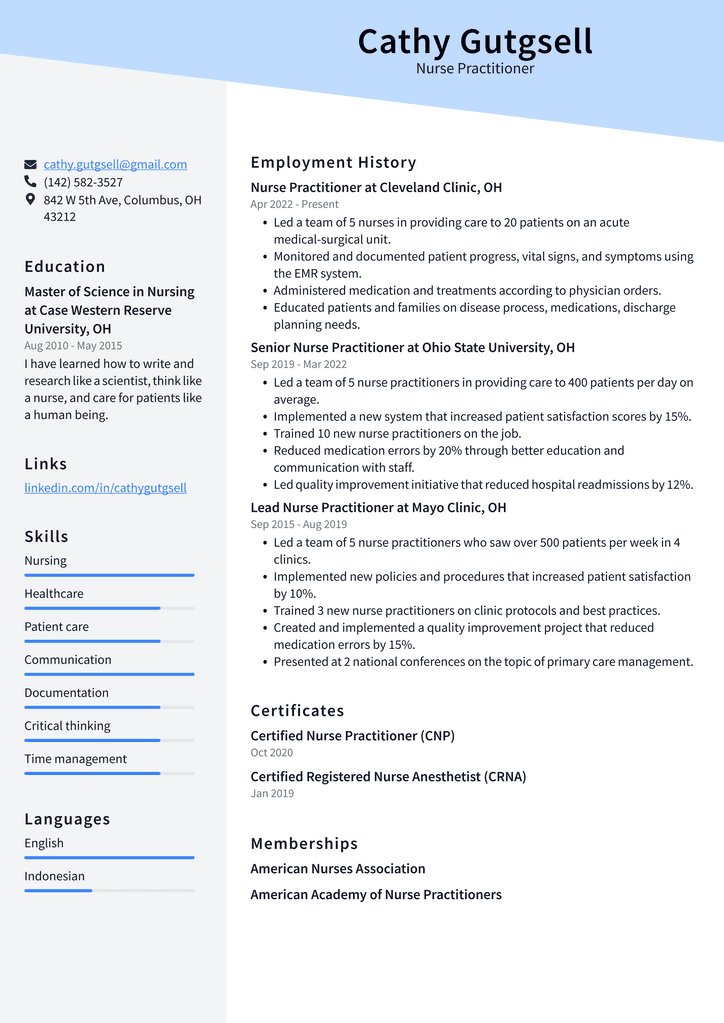
Download This Nurse Practitioner Resume as PDF
Charge Nurse Resume Example
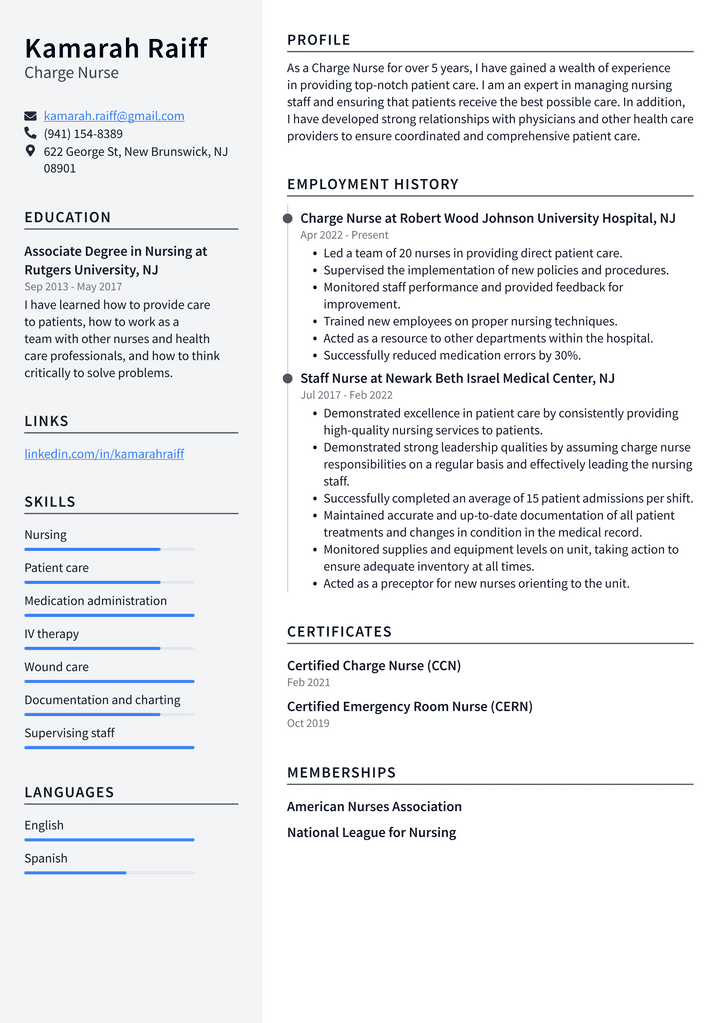
Download This Charge Nurse Resume as PDF
Registered Nurse Resume Example
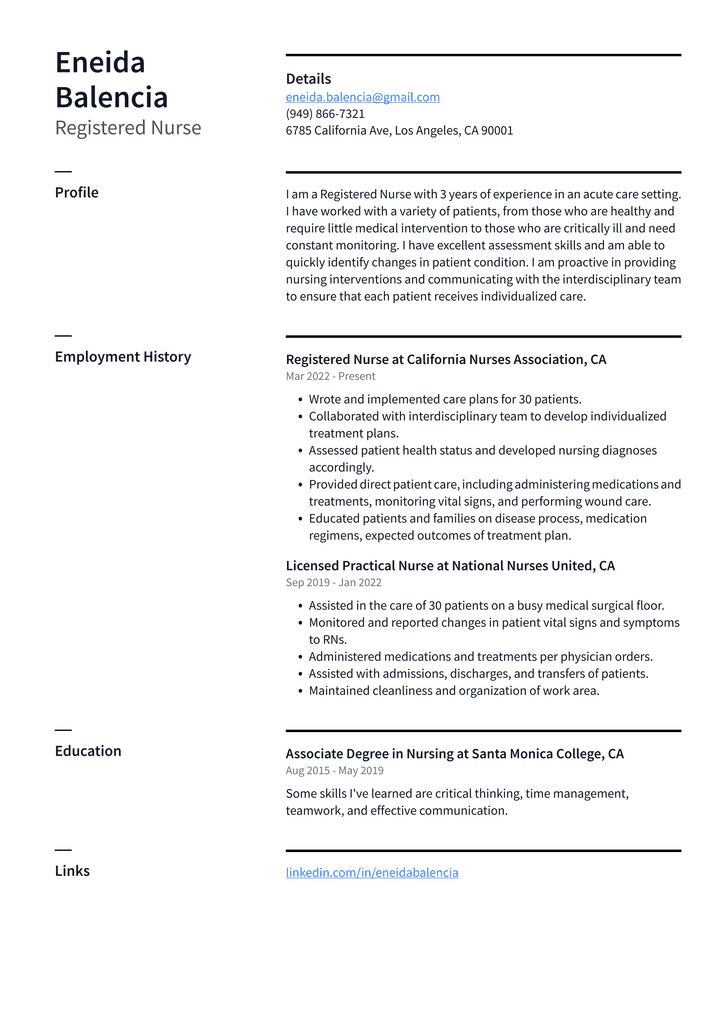
Download This Registered Nurse Resume as PDF
Nurse Manager Resume Example
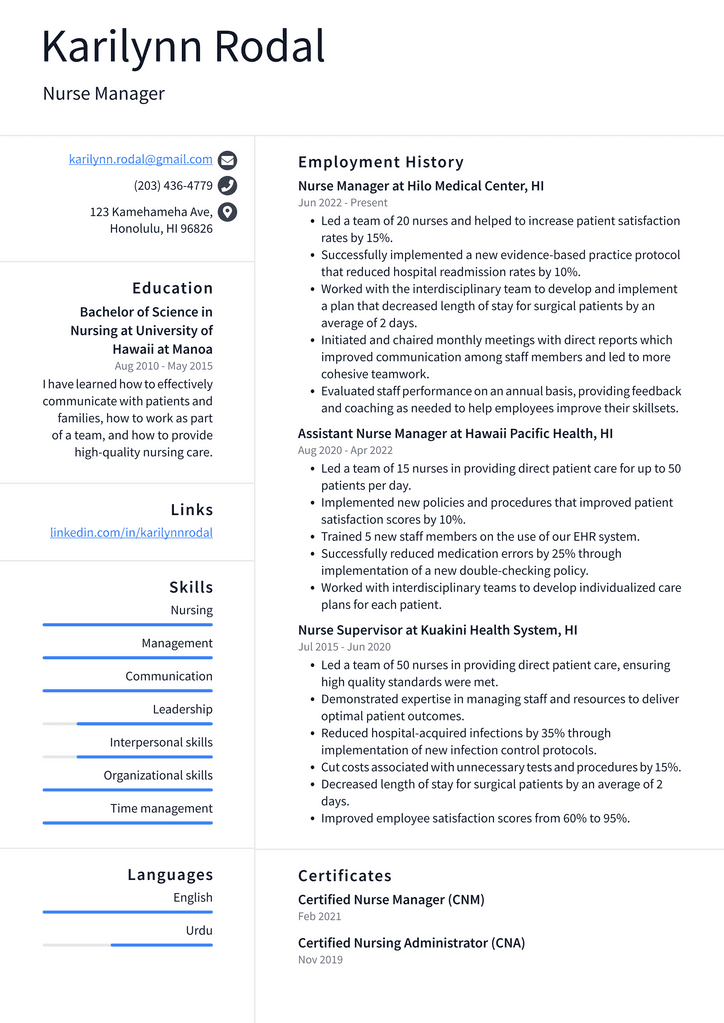
Download This Nurse Manager Resume as PDF
Clinical Nurse Specialist Resume Example
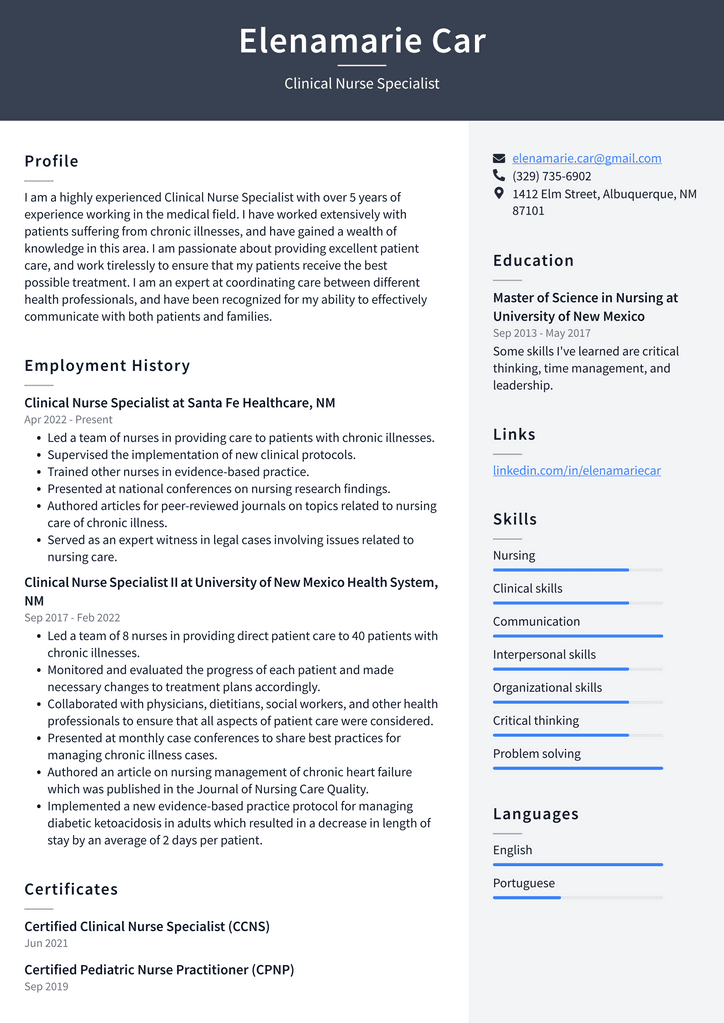
Download This Clinical Nurse Specialist Resume as PDF
Staff Nurse Resume Example
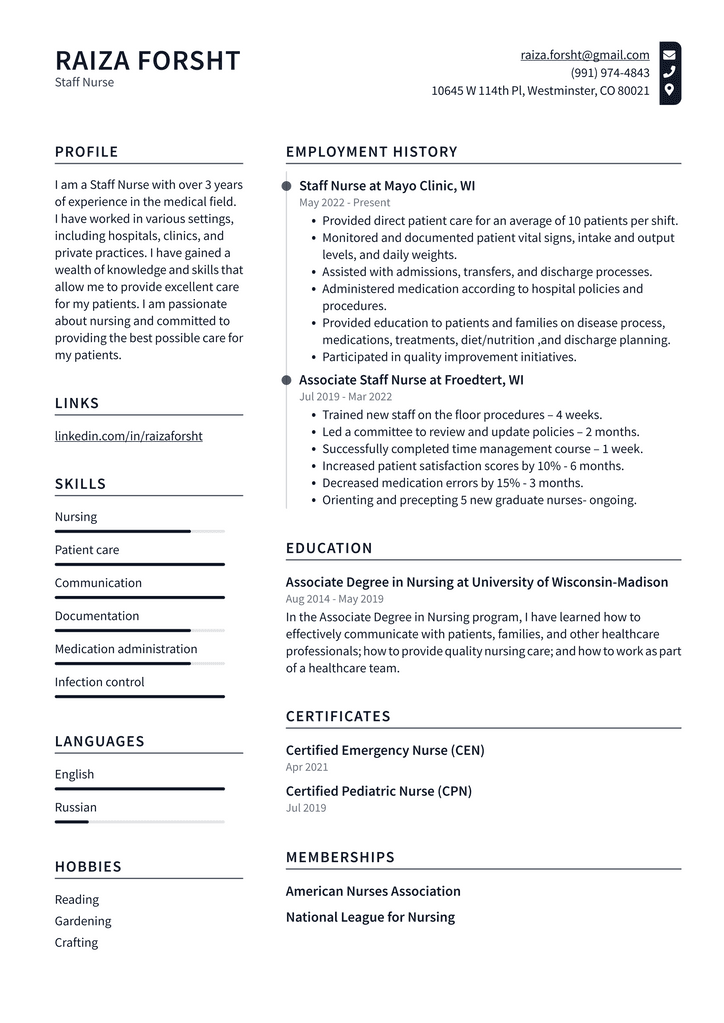
Download This Staff Nurse Resume as PDF
Expert Resume Tips for ICU Nurses
Before you dive into writing your resume, make sure you’re fully aware of the hiring manager’s background and the expectations they have for your document. Use these tips to write an impressive resume: – Make sure your paper is formatted correctly. Several hiring managers will likely review your resume, so ensure it’s easy to read and well-organized. The best format for your resume largely depends on your industry, but combining bullet points and traditional paragraphs is usually a safe bet. – Include your relevant skills, achievements, and professional experience. While your education is also essential, it should be included towards the bottom of your resume and prioritized based on relevance. – Be careful not to lie or exaggerate your experience and skills. Your potential employer will likely verify everything on your resume, so you don’t want to get caught in a lie. – Include a clear and concise section focused on your skills and abilities. Your resume should focus on your past work experience and education, but a few sections focused on your skills and abilities will help you stand out from other applicants.
Summary of Qualifications
The most important section on your resume is the “Summary of Qualifications.” It is the perfect place to highlight your most vital assets and abilities. The summary section should be approximately two sentences long and include three to five bullet points highlighting your relevant skills and abilities. To write your summary, ask yourself, “Why should an employer hire me?” Your resume should be clear and straightforward and should clearly outline your most relevant skills and abilities.
Professional Experience
The professional experience section of your resume should list your work history, from most recent to least recent. It should also include your title, employer, the dates you worked for that employer, and your average hours worked per week. The “Professional Experience” section is the perfect place to include your work experience as a CNA. Include the name of the hospital or company, your job title, and the dates you worked there. If you worked in different departments, be sure to indicate this. If you worked in an ICU setting, include this in your experience.
Education and Certification
The education section of your resume should list all the formal education you’ve completed, including your high school and any degrees or certifications you’ve earned. If you met an ICU training program, include this information in the education section. If you completed any certification courses, they should also be included in this section. These are worth listing if you’ve obtained any healthcare-related certifications in this section.
Additional Skills and Abilities
While the education and experience sections should be prioritized based on relevance and significance, the “Additional Skills and Abilities” section is the perfect place to list all of your skills and abilities, regardless of relevance to the job. If you have any skills and abilities related to ICU nursing, list them in this section of your resume. For example, you could list your proficiency in computer software or your ability to communicate effectively. If you want, you could also include any non-medical skills or abilities, such as foreign language proficiency or computer programming skills.
Conclusion
Finally, end your resume with a clear and concise “Conclusion” section. This is the best place to summarize your skills and abilities and reiterate your interest in the job. If you have any special skills or abilities, be sure to include them here as well. The conclusion section is also the best place to include your contact information, email address, and phone number. Now that you better understand what goes into an excellent ICU nurse resume, it is time to get to work on your document. The resume examples above can help you start crafting your resume.